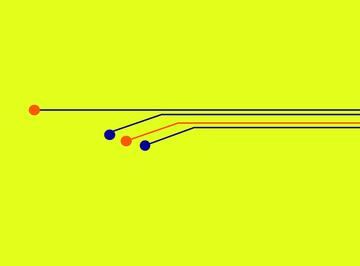CHANNELS OF DIGITAL SCHOLARSHIP SEMINAR
Similar events
‘Gaming & History’

To attend the event, please register here.
'Remediating Historical Affects: Agency and Complicity in Historical Video Games'
Jack Orchard (Bodleian Libraries)
My talk will focus on We. The Revolution [WTR], the 2019 survival game created by the Polish game studio Polyslash. WTR is a game in which the player is put into the role of Alexis Fidélé, a fictional court judge in Paris, as his role intersects with the events of the French Revolution, the Terror, and a counterfactual twist ending which maps loosely onto the Thermidorian reaction. Gameplay consists of trying cases presented to the court, which escalate from fictional accounts of shopkeepers assaulting and denouncing one another, and opportunistic accusations levelled against refractory clergymen, through to the historical trials of figures like Georges Danton, Marie Antoinette, and Louis XVI. The verdicts chosen by the player must balance a sense of justice and responsiveness to the facts of the case, with an awareness of how the ruling will effect the player’s standing in relation to the 3 major factions in revolutionary Paris – the nobility, the revolutionaries, and the common people.
We. The Revolution is a deeply nihilistic and cynical game, which takes its ludic inspiration from games like Papers, Please, Frostpunk and This War of Mine in utilising the limitation of player action associated with the survival genre to explore the ways in which historical circumstances force individuals into morally indefensible positions. Drawing on recent scholarship which reads such narratives through frameworks of complicity and implication associated with historical atrocities like the Holocaust, I argue that We. The Revolution argues for the essential powerlessness and meaninglessness of human intention in historical action, narrativising the slow transition of the player from a human agent working within a personal moral framework to the player as merely an extension of the game’s own procedural rhetoric.
Furthermore, I would like to argue that, by making this argument, We. The Revolution is not unique – its argument that the Terror represents the triumph of the mechanised forces of inhuman rationalist modernity over the individualised passionate subject can be traced back through Adorno and Horkheimer’s critique of the Enlightenment in general, through works like Peter Weiss’ Marat/Sade, through to the English language debates on the meaning of the Revolution, between texts like Percy Shelley’s Revolt of Islam (1818), and Edmund Burke’s Reflections on the Revolution in France (1790). Ultimately I would like to argue that the affective states associated with playing We. The Revolution, and the moral discomfort the game provokes, can provide a historically minded player with the opportunity to viscerally experience the sense of complicity and loss of agency which has been historically associated with the Terror from its earliest detractors on.
'Contemporary video games and Layers of history'
Esther Wright (Cardiff University)
Pentiment (2022) is comparatively novel as a contemporary historical game. The game structures its experience and narrative very explicitly around the complexities of writing history, and negotiating collective remembrance of the past. With gameplay spanning almost three decades in sixteenth century Bavaria, and despite the invention of fictional places and people, the game still contends with very real historical processes and events: the significance of Martin Luther and the Renaissance, peasants’ revolt, and the changing nature of religion, politics, culture, and life more generally for people of all classes and status.
Inspired heavily by works of microhistory like The Name of the Rose (1980) and The Return of Martin Guerre (1982), the period’s literature, art and culture are important to Pentiment on several levels. The intention to reflect and “preserve” the art style of late-medieval illuminated manuscripts and woodblock printing was a key tenet of the game’s marketing. The game’s playable protagonist, Andreas Mahler, is an artist who begins the game part working on his masterpiece and part working as an artist in the scriptorium of the fictious Kiersau Abbey, on the outskirts of a small Bavarian town. And indeed, in the game itself the player interacts with and explores Andreas’ story on the very pages of such as manuscript, replete with explanatory marginalia designed to give players a greater level of historical context on the events they experience. In this sense, the game plays very directly with the idea of history as a story written by someone, with the choices that person makes dictating largely the kind of (hi)story that is written at all.
While this paper uses Pentiment as a case study to explore the way history is “layered” in contemporary video games like it (as well as dissimilar to it), it will also outline some of the ways that the game engages with broader issues and questions of concern for historical game studies as a discipline: what does it mean for a video game to represent the past, or to claim to “preserve” elements of it? How are demands for historical “authenticity” negotiated in the marketing of historical games, and what does a desire to represent the past “faithfully” mean for one of the most contemporary of digital media?
This session is convenend by Tristan Alonge (Université de la Réunion & MFO) and Jack Orchard (Bodleian Libraries)
The ‘Channels of Digital Scholarship’ Seminar is convened by Tristan Alonge (Université de la Réunion & MFO), Andrew Cusworth (Digital Scholarship, Oxford), Olivier Delouis (MFO), Goran Gaber (EHESS, LIER-FYT), Grégoire Lacaze (MFO/Aix Marseille), and Pascal Marty (MFO)



